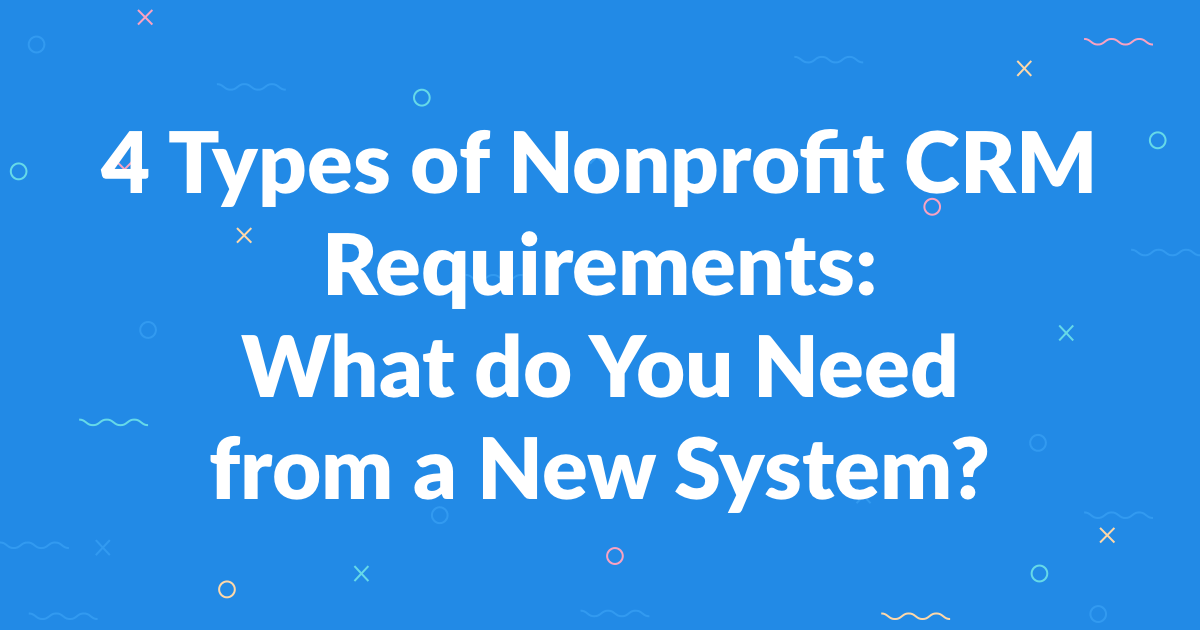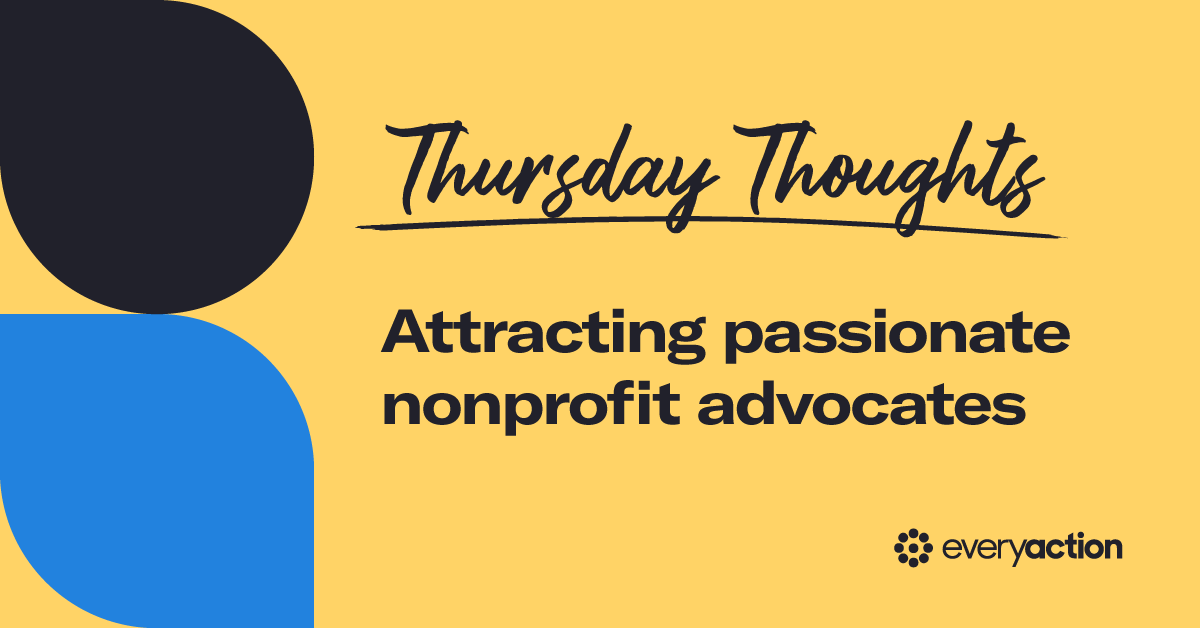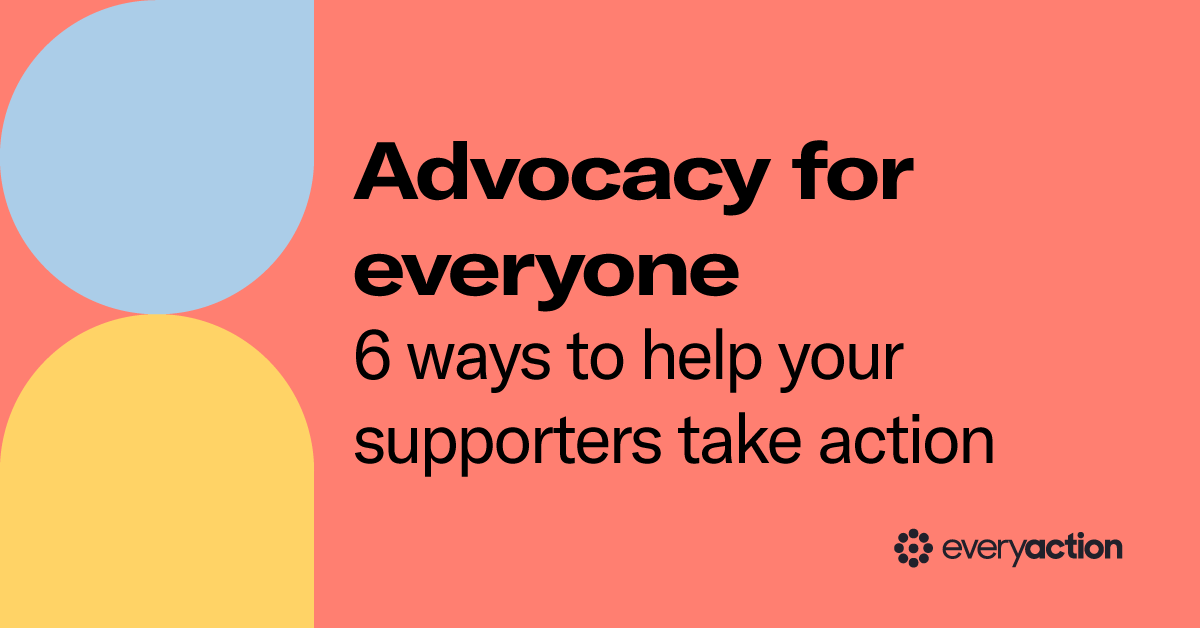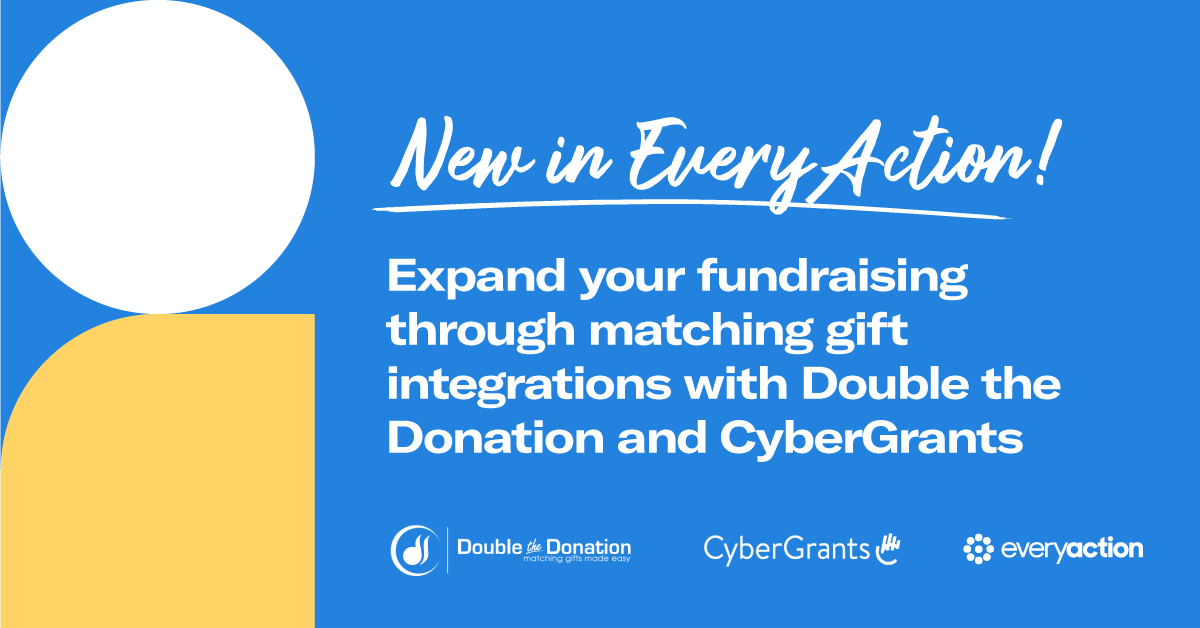4 Types of Nonprofit CRM Requirements: What do You Need from a New System?

As a nonprofit, your mission is your top priority. You know that the right platform can help you work more efficiently, but you also know there are lots of options available—and you might not have much experience choosing one or setting it up! Here’s how our friend Maureen Wallbeoff recommends figuring out what your nonprofit needs out of a new system.
If you’re experiencing pain points with your existing CRM, it’s easy to imagine what life would be like with one that works well. But before you make any purchases, it’s important to get clear on exactly what you need from a new CRM. If you’re like most nonprofits, you have requirements that go beyond product functionality—like how a platform can support you strategically, and whether it fits into your budget—so think about all the ways technology can really support your nonprofit’s work in a holistic way.
Here are some helpful questions to ask yourself at this point in your process:
Strategic CRM Requirements
- What does your organization need from a CRM to help you grow and raise support for your mission?
- Who are your key audiences? What do you want them to do?
- How can a CRM help you scale without needing to add more staff?
Think about how some of your broad, organizational goals connect back to pain points you’ve been having. For example, maybe you want to convert more mid-level donors into major donors, and your team would really benefit from a system that can support this goal in many different ways (like with automations, multi-channel messaging, and actionable donor intelligence.) Maybe you’re committing to greater diversity, equity, and inclusion across your work, and you’ve realized you really need the ability to capture and reflect back your supporters’ identities in your conversations with them. Getting clear on those internal values and long-term goals can help you figure out what your strategic requirements are from a CRM.
Functionality & Integration CRM Requirements
- What are some specific things a new CRM must do to be a good fit for your needs? (For example, online donations, moves management, or events management.)
- Are there other tools and platforms of yours that might need to connect with your CRM to extend its capabilities?
When you’re mapping out these needs, think about your data ecosystem and reporting, and how you can make those processes more efficient and accurate in a new system. At this point in time, you should be brutally honest about which items on your wish list are a ‘must have’ and which are aspirational.
Budgetary CRM Requirements
- How much can you invest?
- When is your current contract up for renewal?
- Will you pay for your new system and the migration costs in this fiscal year or the next?
Money is always a factor in the buying cycle. When you’re choosing a new CRM, it’s important to think about the total cost of ownership—that’s the sticker price of the system, plus what you may need to pay for anything that’s not included in that initial price. (It can really add up over time if you make a purchase and then discover that you need ongoing support just to manage your system!) Remember to budget for items that might not be obvious at first: additional consulting, custom work, support and customer success, add-on functionalities, and so on.
Training & Support CRM Requirements
- Does your team work in different places or time zones? Would pre-recorded training sessions on demand work better, or are you expecting a virtual classroom experience with everyone learning together at the same time?
- What internal resources can you tap? (Your own IT department or CRM administrator would be two examples.) What do you need from other sources, like your CRM company or independent consultants and coaches?
- How do you want to connect with the support team once you’ve moved into a new system?
Every platform handles new user training and customer success in a slightly different way. Choosing a platform that’s designed with the needs of nonprofits in mind can help you be sure that the training and support you receive makes sense for your needs.
Ultimately, going through the effort of choosing a new platform should mean that in the end, your investment helps you scale up your work and meet your organization’s long-term goals.


